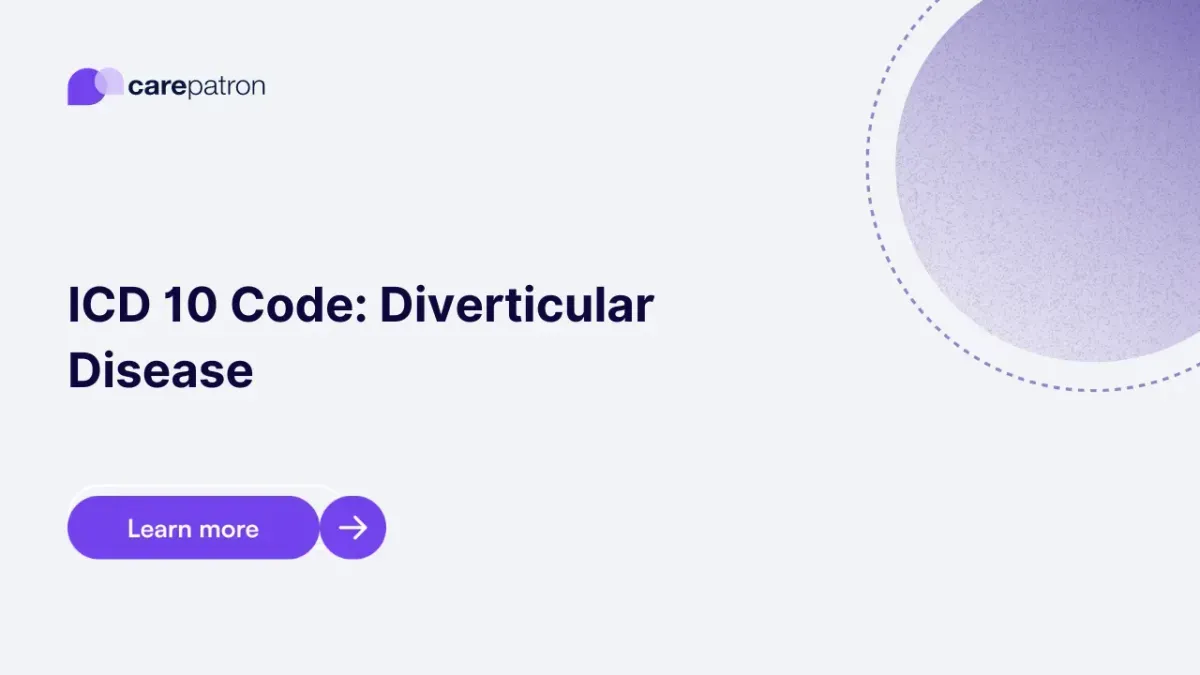
Diverticular Disease ICD-10-CM Codes
Explore ICD-10 codes for diverticular disease, including clinical aspects, relevant synonyms, diagnosis guidelines, and complications such as diverticulitis.
Use Code
EHR and practice management software
Get started for free
*No credit card required
Free
$0/usd
Unlimited clients
Telehealth
1GB of storage
Client portal text
Automated billing and online payments
